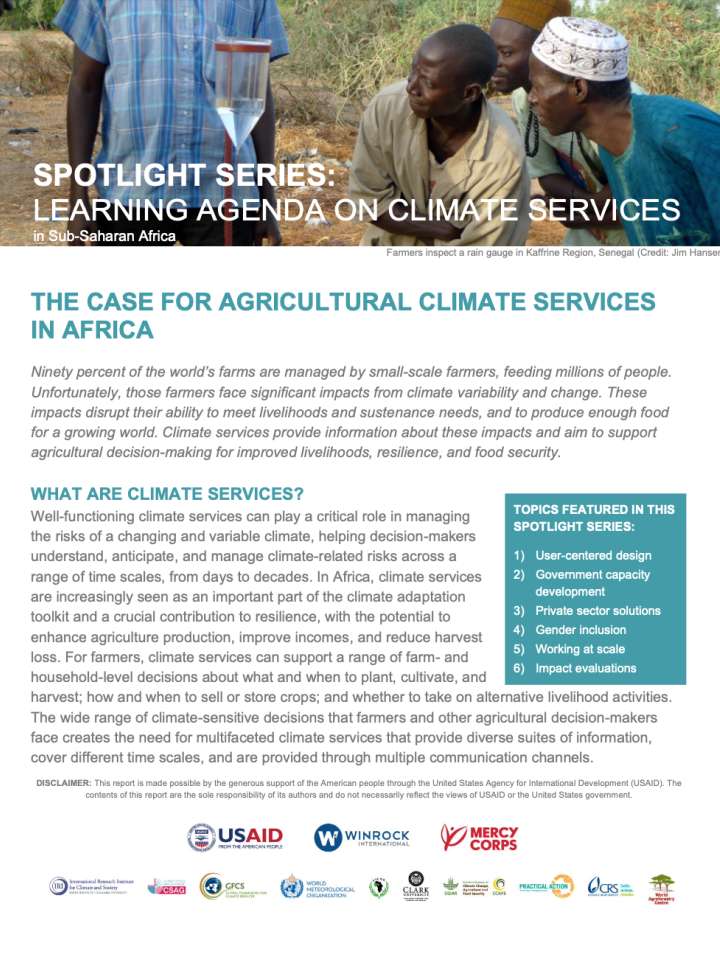Spotlight series: The case for agricultural climate services in Africa (Introduction)
This paper examines the case for agricultural climate services in Africa. Ninety percent of the world’s farms are managed by small-scale farmers, feeding millions of people. Unfortunately, those farmers face significant impacts from climate variability and change. These impacts disrupt their ability to meet livelihoods and sustenance needs, and to produce enough food for a growing world. Climate services provide information about these impacts and aim to support agricultural decision-making for improved livelihoods, resilience, and food security.
The introduction addresses that well-functioning climate services can play a critical role in managing the risks of a changing and variable climate, helping decision-makers understand, anticipate, and manage climate-related risks across a range of time scales, from days to decades. In Africa, climate services are increasingly seen as an important part of the climate adaptation toolkit and a crucial contribution to resilience, with the potential to enhance agriculture production, improve incomes, and reduce harvest loss. For farmers, climate services can support a range of farm- and household-level decisions about what and when to plant, cultivate, and harvest; how and when to sell or store crops; and whether to take on alternative livelihood activities. The wide range of climate-sensitive decisions that farmers and other agricultural decision-makers face creates the need for multifaceted climate services that provide diverse suites of information, cover different time scales, and are provided through multiple communication channels.
Explore further
